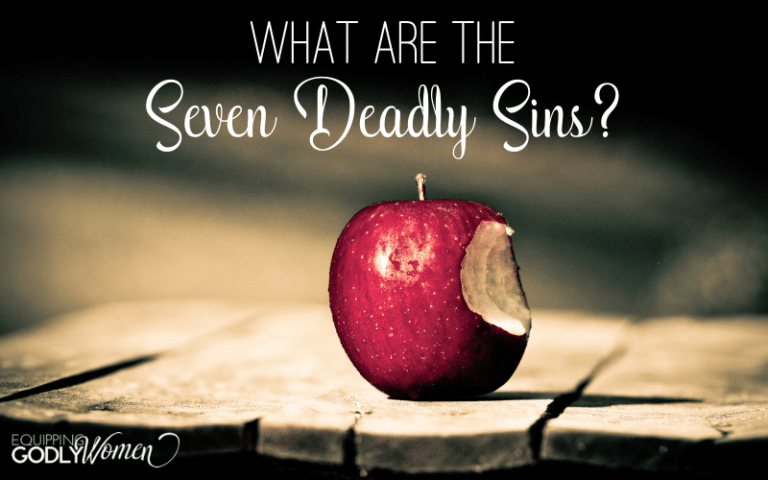How to Practice Gratitude (and Reclaim your Joy!)
Learning how to practice gratitude is key for our joy in Jesus. In this post, Ellie Hunja is sharing how we can train our minds and hearts to rejoice in God’s blessings, even in hard times.

Have you ever experienced a moment when your heart overflowed with gratitude?
The other day, I glanced up from my laptop screen and my eyes landed on a photo of my son as a newborn. My heart swelled with a sense of awe that pushed away every tired and frustrated feeling that my day had brought. As I basked in the glow of my blessings, I told myself: “Bottle up this feeling – you’ll need it later!”
Of course, life doesn’t work that way. We’re naturally forgetful people. We struggle with learning how to practice gratitude.
If the Israelites were grumbling in the desert just days after God delivered them from slavery, then I’m certainly following in their footsteps every time I focus on a minor frustration and neglect the bigger picture of God’s incredible provision.
They needed help practicing gratitude, and we do too.
Usually, when I realize I’ve been taking my blessings for granted, I feel guilty and vow to do better. After all, God commands that we “give thanks in everything,” right? So I add “practicing gratitude” to my never-ending to-do list and hope for the best.
The only problem is, feeling guilty doesn’t lead to a more grateful heart. Plus, the last thing we need as busy moms is another reason to feel like we’re not measuring up.
I have good news, though!
What if I told you that God commands us to be grateful not only because He deserves it (which He does!) but because practicing gratitude can give us the strength and joy that we desperately need?
God is a loving Father. He cares deeply about our mental health. He wants us to be able to pour out from cups that are overflowing, not empty and drained. He wants us to have joy.
So let’s talk about how to practice gratitude:
What does gratitude really mean? How do you practice gratitude? And what does the Bible say about gratitude?
Related Reading: Three Habits of Families That Raise Thankful Kids
What is Gratitude?
Merriam-Webster defines gratitude as “a feeling of appreciation or thanks.”
This seems pretty straightforward when we think about obvious moments of kindness. When we receive a gift, an act of service, or a kind word, we instantly feel grateful because something tangible has happened that we appreciate.
But what about the in-between moments of life, when we’re drowning in our responsibilities or riding the roller coaster of our children’s emotions? What does “giving thanks in everything” look like when we’re literally not “feeling” it?
How to Practice Gratitude
It’s natural to feel grateful when something good happens. But practicing gratitude is more like building a muscle, as you teach your mind and heart to respond to what’s true in spite of difficult circumstances.
Practicing gratitude is NOT spiritual bypassing – the act of suppressing negative emotions and living a detached, superficial existence. It’s NOT repeating trite spiritual cliches to ourselves out of duty, either.
So how do you practice gratitude?
Practicing gratitude is about giving glory to God AND uplifting your own soul. It means acknowledging your present difficulty while gently leading your heart to also see the many ways God is actively moving and providing in your life. It’s taking the time to actually feel gratitude for things that we often take for granted.
And remember: the goal isn’t simply to check an item off of our “good Christian” to-do list. Gratitude helps us have a real encounter with our living, loving God. He wants you to experience the “fullness of joy” that comes from His presence. And the more you grow your gratitude muscle, the more you’ll be able to cling to the joy God promises you, no matter what’s going on in your day.
Three Ways to Practice Gratitude Consistently
1. Start practicing gratitude with your first thought.
Many days, my very first thought is an anxious one. I feel a sinking feeling in my chest as I ruminate on the day’s tasks and obligations, or I’m simply annoyed that I didn’t get enough rest.
Those feelings are valid, but I can still learn how to practice gratitude in the midst of them.
I can say to myself, “Alright, I know I woke up not feeling great. But God woke me up and put breath in my lungs. I can see the warm sunshine streaming in. I can hear the excitement in my kids’ voices. I know that if I look for it, I will see His goodness today.”
2. Take the time to savor the sweet moments.
We can’t bottle up spontaneous moments of gratitude. But we can make a decision to not let simple, joyful moments pass us by.
Every time we pause to acknowledge the beauty of a moment and say “thank You” to the God who made it possible, we’re rewiring our brains for gratitude. The more goodness we choose to pause and rest our gaze on, the more we’ll notice over the course of our day.
We don’t learn how to practice gratitude overnight. Practicing gratitude is a habit we develop over time.
So next time your kid says something cute or someone holds the door open for you, don’t just move on. Close your eyes, take a breath, and relish the feeling of God’s kindness toward you.
3. Add a gratitude practice – like gratitude journaling – to your routine.
Gratitude journals prompt you to give thanks for specific blessings. While it’s always wonderful to thank God for the roof over your head and the food on your table, journaling on a regular basis can help you get precise and celebrate more deeply. Did a particular feature of your home come in handy this week? Did the unique flavors of your dinner last night really hit the spot?
When giving genuine thanks to God in these little moments becomes muscle memory, we’ll find ourselves feeling lighter and less burdened by the frustrations of the day. Learning how to practice gratitude becomes much easier when we make it a regular habit.
Looking for a journal to help you learn how to practice gratitude?
Here are a few great ones I’d recommend:
- Give Thanks to the Lord: A 52 Week Inspirational Guide to More Prayer and Less Stress

- 100 Days of Grace & Gratitude: A Devotional Journal
*This post contains affiliate links, which means if you make a purchase, we may make a small commission at no additional cost to you. Thank you!
Related Reading: How to Start Prayer Journaling (With 20 Prompts for Women!)
4. Remember that practicing gratitude is a choice.
We’ve all heard someone say, “Be grateful – it could always be worse!” But God doesn’t want us to simply accept our dreary circumstances begrudgingly because “it could be worse.” Practicing gratitude doesn’t mean saying, “Well, at least it’s not worse.”
God is light. God is joy. God is abundance. He invites us to pour our hearts out to him, including all our heavy feelings, and then He promises to shift our perspective in a beautiful, glorious way – if we let Him. But it means we have to want to feel better.
We have to want to learn how to practice gratitude.
I’m prone to wallowing, as many of us are. But when difficult emotions pop up in the midst of my day, I don’t have to let them dominate the narrative. My emotions are real, but so is God’s unchanging truth – and it’s up to me to pass God the microphone so that His Word can speak more loudly than my circumstances.
Of course, learning how to practice gratitude will take time, and new habits can be hard to maintain if we don’t have a strong “why.”
So let’s dive into what God says about practicing gratitude.
Related Reading: Four Ways to Raise Children Who are Truly Grateful
What Does the Bible Say about Gratitude?
1. We can be sincerely grateful because God is the reason for every good thing in our lives, including the fact that we woke up to see another day. We have so many things to be thankful for and so many reasons to learn how to practice gratitude!
This is the day that the Lord has made, let us rejoice and be glad in it. — Psalm 118:24
2. Practicing gratitude glorifies God, as it points others back to the source of the good gifts in our lives.
All this is for your benefit, so that the grace that is reaching more and more people may cause thanksgiving to overflow to the glory of God. — 2 Corinthians 4:15
3. Gratitude reminds us that God always provides, and strengthens our faith that He will continue to do so. When we open our eyes to all the things we can thank God for, we can see more clearly that He is living and active and on our side. Learning how to practice gratitude strengthens our faith in advance for moments when we can’t see as clearly and our faith is tested.
Let them give thanks to the Lord for his unfailing love and his wonderful deeds for mankind, for he satisfies the thirsty and fills the hungry with good things. — Psalm 107:8-9
4. Gratitude brings peace to our hearts as we remember that God is in control. When we learn how to practice gratitude and make it a habit, it protects our hearts from letting worry take over.
Do not be anxious about anything, but in every situation, by prayer and petition, with thanksgiving, present your requests to God. And the peace of God, which transcends all understanding, will guard your hearts and your minds in Christ Jesus. — Philippians 4:6-7
5. Practicing gratitude helps us to be genuinely content – to spend less time comparing and envying others, and more time reflecting on His goodness in our lives. We learn how to practice gratitude for what we have, rather than feeling bad about what we don’t.
Godliness with contentment is great gain. For we brought nothing into the world, and neither can we carry anything out of it. But if we have food and clothing, we will be content with these. — 1 Timothy 6:6-8
6. Practicing gratitude pauses our preoccupied minds and allows us to simply be present – something nearly every mom I know desperately desires to be.
Therefore do not worry about tomorrow, for tomorrow will worry about itself. Each day has enough trouble of its own. — Matthew 6:34
7. Gratitude wages spiritual warfare.
Finally, be strong in the Lord and in his mighty power. Put on the full armor of God, so that you can take your stand against the devil’s schemes. — Ephesians 6:10-11
I end with this truth because it’s the most crucial one. Practicing gratitude is nothing less than a fight.
My therapist illustrated this so clearly for me recently.
She asked me to picture a beautiful box with all of my most treasured possessions inside – all the greatest things I could imagine.
She then asked, “What would you do if someone tried to take it from you?”
“I’d shout, ‘NO! That’s mine!” I said.
“What if they’re still trying to take it from you?” she continued.
“Well, then I’d shove them out of the way and run in the opposite direction. I’d do whatever it takes!”
She let me sit with my own words for a moment, and then gently said, “So now you know. When you’re feeling down and can’t figure out why, you’ll remember that beautiful box and say, “Hmm, I think I know what’s happening here. You’re trying to take my stuff. You’re trying to steal my joy. But you can’t have it.’”
Our joy in Jesus is precious: it lifts our mood and gives us strength for our day. Learning how to practice gratitude can help us to preserve that joy even when doing so feels like a battle.
Hard days will come. Difficult emotions, impossible situations – they’ll come. But let’s vow to be on guard against the lies of the enemy, which try to convince us that the bad outweighs the good, or that practicing gratitude isn’t worth the effort.
When we reflect on the countless real, tangible ways God has blessed us, we can’t help but stand in awe. Our faith is strengthened, and our joy is invincible. This is why learning how to practice gratitude is so important!
If the mind is a battlefield, then practicing gratitude is an essential weapon in the fight for our joy in Jesus. Let’s do whatever it takes to win.
Have you ever struggled with how to practice gratitude in the past? What is one way of practicing gratitude that you can implement in your own life, starting now?

Ellie Hunja writes about parenting, faith, mental health, autism awareness, and more at EllieHunja.com.
She is a wife, a mother of two, and a leader at her church, where her husband serves as an elder. She holds a Master of Social Work and is passionate about social justice and mercy ministry.









